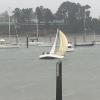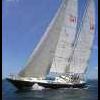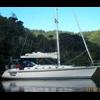Leaderboard
Popular Content
Showing content with the highest reputation on 07/07/23 in all areas
-
suspect if they look hard enough the gulf will be a mat in several direction from the barrier,tides stop for no man4 points
-
Yes, definitely cynical, you cannot stop people doing stupid (to us) things, what could possibly go wrong visiting a live volcano site. People queue up to climb Mount Everest, some will die, (just not me) they think. OH, the Titanic etc. etc. People are risk takers, (look at me! look at me!) always have been always will be. Someone offers you a really good deal, probably too good to be true, but you go for it anyway We (those people) have to take personable responsibility for ourselves and the choices we / they make.3 points
-
A roller coaster, Man made and man maintained, or not, as per the current one falling to bits in the US is a totally different accident waiting to happen compared to = A Volcano ( please feel free to put in here who or what controls it) on a Steaming, Smoking Island Sulphurously fuming most of the time. If Worksafe was actually doing the job it is apparently supposed / expected to do, NO ONE would have been allowed to land there, end of story. OH, and Ruapehu (Volcano) People ski there every year and climb it in the clearer months. As we all know it has blown many times, killed and injured p2 points
-
Laws and rules don't stop people breaking them, but they do allow bureaucratic jobsworths at the bottom of the cliff to lord it, after the event. Think White Island, Where it is apparently simpler and maybe cheaper to plead guilty to whatever the charge is than to fight to clear their name. The Encounter in Northland, the only thing he, (the skipper) appears to have been found guilty of is an out of date medical certificate.2 points
-
1 knot of tide in North Channel shifts 35 million litres of water an hour. To make some basic assumptions, peak tidal flow of 2 knots, and obviously slack water of zero knots, an average tidal flow over a day is probably not going to be far off 1 knot. You are talking in the order of 840million litres a day of water flowing through North Channel. But don't worry, it is us boaties anchoring that is spreading the caulerpa. Idiots.1 point
-
1 point
-
1 point
-
Closing Kawau to anchoring is going to be a tough one, North Channel maybe but Bon Accord? Maybe this is how its going to play out, extensive areas of the gulf off limits to recreational boating but at some point there will need to be a public forum on Caulerpa if the only policy is no anchoring zones. End of Gulf cruising, IDK but I am wondering if MPI are the right agency to manage this as their mission statement seems a bit of a mish mash. If you get on their site, it appears their raison d être is to support the commercial sector. Biosecurity is a big thing to MPI, but it seems the1 point
-
I see that Stuff story dropped this one line from the MPI press release: "Divers found small 20 centimetre to 30 centimetre patches of the seaweed in the North Channel, north-west of Kawau. Finding exotic Caulerpa in another area of Tāmaki is disappointing but not unexpected given the nature of the seaweed. Wonder why the wouldn't mention it was found in North Channel? Very strong tidal flows there, and very few, if any boats ever anchor there. If it was found in Bon Accord then the propoganda about boats spreading it might be true. Not so much when its found in the location wit1 point
-
Haha, neither. It is a vote for people and organisations to do their job properly. We don't have a Workplace health and safety regulator. All we have is a prosecutor. If someone dies in a workplace accident, Worksafe comes along and launches a prosecution against those that aren't dead. It is near physically impossible to be found 'not guilty' if Worksafe prosecute you, by fact that someone is dead. The charge is always 'failing to provide a safe work environment'.* This focus is entirely reactive and punitive. I would argue an effective regulator would be dealing with issues pr1 point
-
On that basis we would not have any safety standards for anything. Its not about people who make informed choices - its about those making uninformed choices. The tourists on White Island had a right, surely, to expect that the tour was safe. Adventure activity providers have, for many years now, understood that their job was to provide an experience that held the FEELING of danger without the actual danger. Bungee is an excellent example - in your mind you are plunging to certain death, but also in your mind the provider has done the engineering, training, product testing, maintenance1 point
-
This is a somewhat cynical comment. NZ has an unenviable record of damaging and killing people who were in positions where they were owed a duty of care. Our rate of death from workplace accidents is high when compared to our OECD partners. We throw people off bridges tied to bits of rubber band, we hurtle them down and up river gorges at high speed in unstable craft both powered and unpowered, we take people out to unpredictble active volcanic islands, we clear trees on unstable and steep hillsides using cheap labour and hazardous equipment, etc. In the case of White Island, t1 point
-
Watch what you wish for. We could have that here. But you would have to fund it. And me. And every other boatie on here. Perfect excuse for a new buearcacy. Fundamentally, we don't have any issues in NZ that aren't already addressed by existing rules and regulations. What this thread is about, the Paihia ferry crash, there are already clear and abundant rules to avoid incidents like that. Just remember, murder is illegal, but we still have murders. Just because you make more rules and regulations doesn't mean people will suddenly stop doing dumb sh*t.1 point
-
Haha, wasn't on a seasickness medication was he? A bunch of mates chartered a cat in Cuba. First night out was a bit lumpy as there was a cyclone to the north of the country, we were on the south heading towards the Bay of Pigs. One of the non-sailing girls was prone to seasickness so I gave her some Stugeron, a fairly stiff seasickness pill from the UK (not allowed to get it in NZ). She was having a great time. Almost concerningly so. When she started going on about the wild horsemen riding alongside us we thought we'd better carry her downstairs to her cabin. That same trip we had a clo1 point
-
I must admit I have been out on 2 handed races in the past, early hours, sleep deprived and approaching commercial/fishing/processing boats with all kinds of lights coming off them. Worked myself into a lather trying to decipher what they were up to, imagining sub surface tow cables, networking net dragging trawlers etc etc until I get to the point I have to wake the off watch crew for a second opinion or just tack/gybe and get the hell away from them. Although the off watch crew has also told me in great detail about the rabbits that managed to stay 1 or 2 waves in front of the bow1 point
-
All these stories of professional crews on large commercial vessels acting like c*nts only reinforces my point about the 'might is right' rule. Whilst it is not a formal legal rule, it is clearly both a law of nature and a law of physics. Small sailing boats just need to stay well away from commercial shipping. Ideally so far away that the colregs never come into play in the first place. I think it is fair to assume any commercial fishing boat anywhere is NOT keeping a proper lookout. On the odd occasion they are, bonus. But if I had a bottle of whisky for every story I heard from so1 point
-
I had an interesting one many years ago -approaching the gate off the tamaki river in a tug towing a barge at 10pm fully dark, showing correct lights a subritzky (now Sealink) car ferry came straight for us on an opposing course heading out to Waiheke (there was plenty of depth) they kept on towards us despite me making a radical turn off course to avoid them and calling on the VHF , meanwhile I was buzzing my sleeping crew up from down below on the emergency horn and signalling by horn to them -as they swept by I could see straight into the wheelhouse -where they were watching TV!! Their1 point
-
I agree, courtesy matters and being aware that right does not mean safe. I had one with a commercial fishing boat steaming back to AK in the Motuihe channel, we were tacking home as well and crossed him. The obligation was on him to keep clear and i thought he would but by the time I realised he wasnt altering course we were committed, we cleared him fine but as we passed there was no one in the wheelhouse! Then a man appeared and started shaking his fist! Lesson one, their wheelhouse may be empty, literally or figuratively!1 point
-
The problem lies in there being the need for an assessment by the skipper. When is it appropriate to drop the rules and save yourself? One mile? Half mile, 100metres?. Really all I'm saying us i will err on the side of caution. And I'm always astounded at skippers of small recreational vessels who push to the limits (even to the point of collision) and get indignant about it. What's easier, screaming on the vhf and firing off flares, or coming up 10 degrees for a few minutes?1 point
-
I understand you are correct in the technicalities of the rules IT. I guess what I am saying is a combination of your two points above. A prudent skipper will just stay out of the way of heavy shipping. The long extension of this is to meet his colregs requirements of avoiding a collision. I'm yet to see a situation where a yacht can't maneuver out of the way of a large ship, but the same large ship can maneuver out of the way of that yacht* I verbalise this 'prudent skipper' behaviour (to just stay well clear of heavy shipping) as the 'might as right' rule. *I have two e1 point
-
Come on guys, the rules are there so that other skippers know what your are (likely/supposed) to do. There is no "tonnage" rule, except in areas of restricted navigation, as above- the 500 ton rule inside pilotage limits. If you can keep clear of any larger vessel so there is no collision risk and you'll pass outside the prohibited zone, well and good. If not, then the rules say once there is any perceived collision risk, the stand on vessel is REQUIRED to stand on, so the burdened vessel can make the required changes to create the separation needed. Before that, make any changes ea1 point
-
1 point






